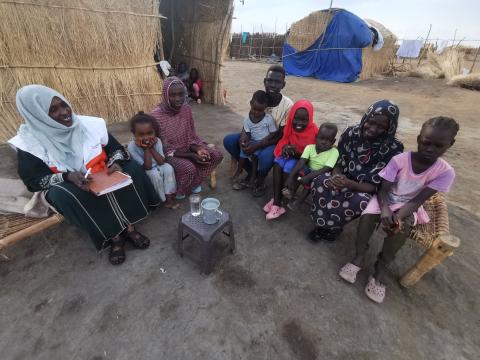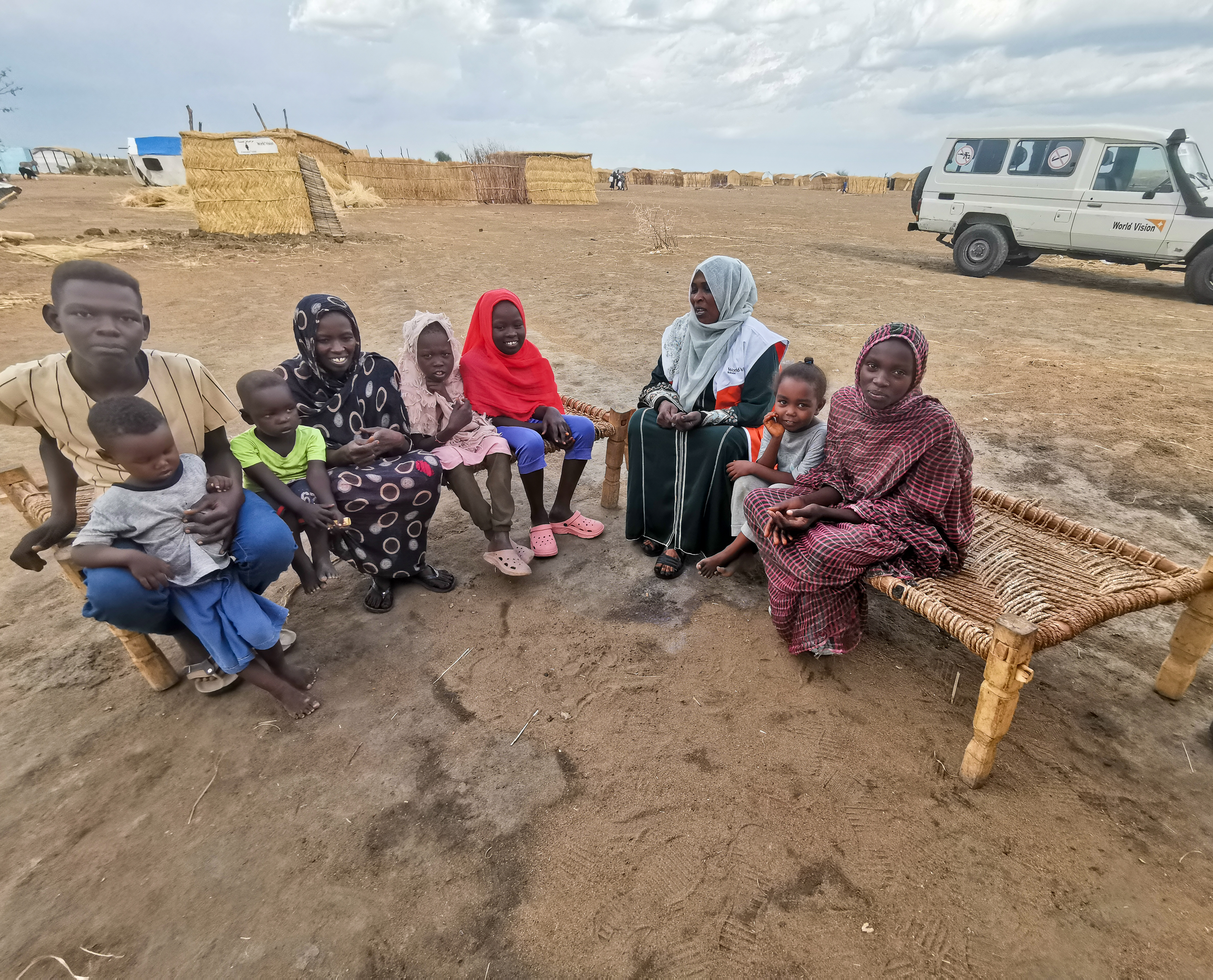Mariam's Journey: A Story of Displacement and Resilience

Mariam (35), a mother of six, along with her husband Idris, found their lives forever altered by conflict. Originally from Boot, a village approximately eight kilometers from Damazin town, their family was among the thousands displaced by the ongoing conflict in Tadamon locality in December 2024.
Seeking safety, Mariam and her family embarked on a harrowing 25-day journey from Boot to Damazin. They initially sought refuge in Alsalik village, hoping the fighting would subside, allowing them to return home. "We stayed there for a long time, not wanting to come to Damazin," Mariam recounted. "We hoped the clashes would stop." However, the conflict intensified, forcing them to continue their arduous journey. In January 2025, they finally arrived in Damazin, settling in the Alkarama 4 Internally Displaced People (IDP) camp.

Life in Alkarama was fraught with challenges, particularly during the months of January and February. The most pressing issue was the severe lack of water. With a massive influx of displaced people and limited access to safe water. Mariam and other women in the camp were forced to walk 8 kilometers to Damazin town to collect water. "The trip took two hours," Mariam explained. She could only manage to carry two 20-liter jerry cans on her head per day, a physically demanding task that consumed most of her time. "By the time I brought the second jerry can, the first one was already consumed by my children."
The water scarcity had devastating effects on her family's daily life. They could no longer cook two meals a day, a basic necessity. "We only cooked one meal," Mariam said. "I cooked breakfast, and for dinner, we had only rice because of the water shortage." Beyond food, personal hygiene became a luxury. "We were not able to bath or wash our clothes and hands," she recalled, highlighting the dire conditions they endured for two months.
A significant turning point came in March 2025 with World Vision’s intervention. Mariam expressed immense relief and gratitude for the improved water supply.
"After the water supply through water trucking by World Vision, I could collect eight water jerry cans per day, which is enough for my family," she shared with a smile. This newfound access to water transformed their lives. "I cook two meals instead of one, which is very comfortable for my children. And my children and I can bathe every day, wash our hands and clothes comfortably."
The Water, Sanitation and Hygiene (WASH) intervention also included the construction of new latrines, a vast improvement from their previous situation. Mariam described the appalling conditions that existed before, when the previously constructed latrine had collapsed, forcing people to open defecation. "My older children and I used to defecate at night in the forest, risking our lives, while the small children defecated around our shelter, which caused many flies ,unacceptable smells, and we were prone to contracting diarrhoea," she grimly recounted.
Now, with the new latrines conveniently located near their shelters, they now live in a clean environment "There are no faeces around our shelters, no bad smell, and no a lot of flies."
Mariam’s story is a testament to the resilience of those displaced by conflict and the critical impact of humanitarian aid in their lives.
World Vision has provided WASH services to 107,034 people in Sudan since the onset of the conflict through improvement in sanitation services, establishment of water supply systems and provision of WASH kits.